National Basketball Association mascots: Are they your team name or not?
Mascots are a timeless sports tradition. Characters like the Philly Phanatic and Benny the Bull have endeared generations of fans. And nowhere is the mascot more beguiling, more front and center, than in professional basketball. The live NBA arena experience—with its flood of light, ample timeouts and breaks, and the fans’ proximity to the tight confines of hardwood court—makes it the perfect stage for an enterprising performer in a fuzzy costume.
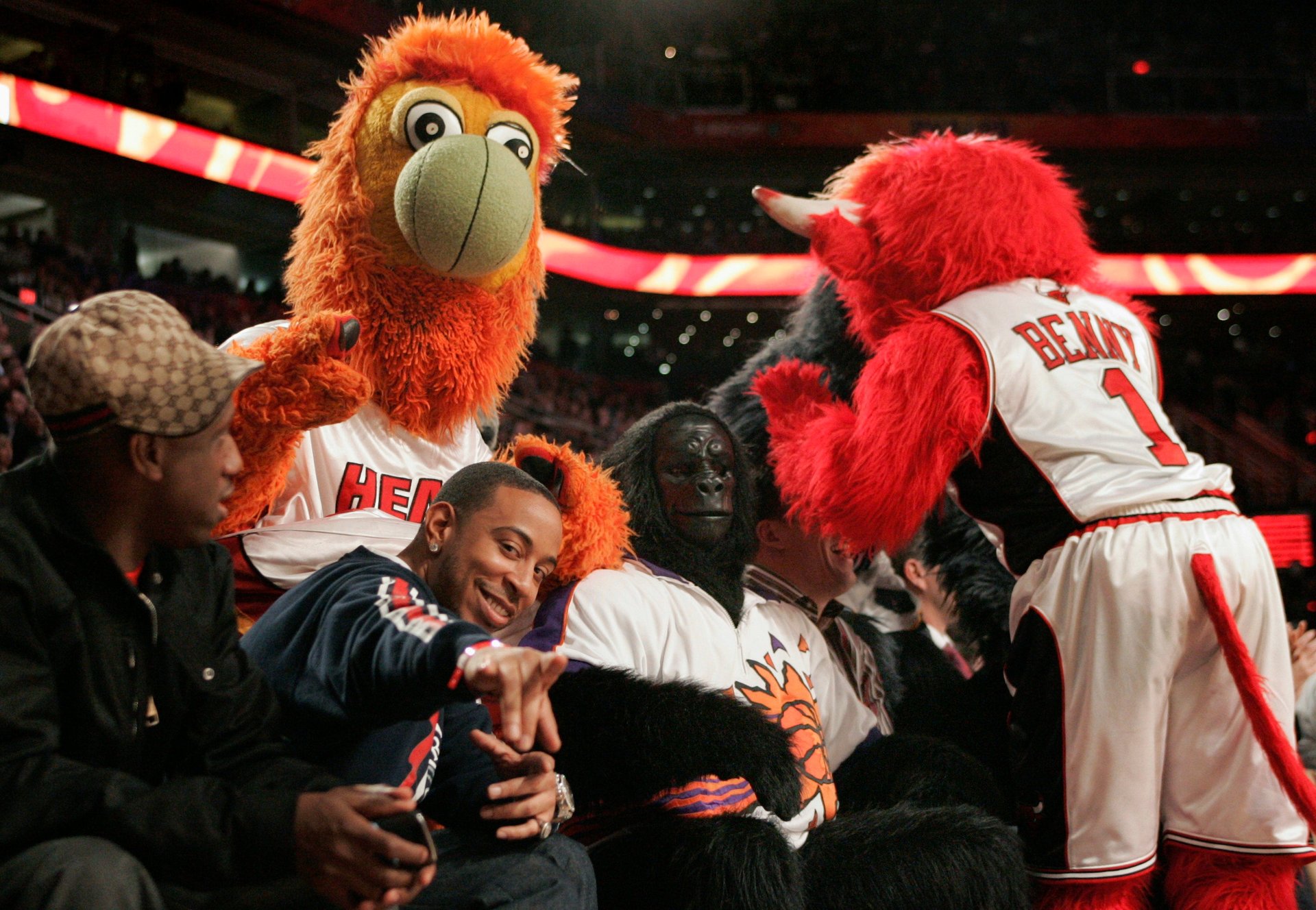

Mascots are a timeless sports tradition. Characters like the Philly Phanatic and Benny the Bull have endeared generations of fans. And nowhere is the mascot more beguiling, more front and center, than in professional basketball. The live NBA arena experience—with its flood of light, ample timeouts and breaks, and the fans’ proximity to the tight confines of hardwood court—makes it the perfect stage for an enterprising performer in a fuzzy costume.
When it actually comes to choosing a mascot, it seems there is no hard and fast rule. Whatever the details of the process, the first question that must be answered from the front office is “Will our mascot be the same as our team name?” And yet there seems as of yet to be no reliable or comprehensive resource yet in existence. What follows is a taxonomical survey that attempts to answer this question through painstaking categorization.
Yes, your mascot is your team name
These teams have mascots that are the same as their team name. (Where it may seem unclear as to our reasoning behind a given mascot categorization, we’ve offered an analysis to explain our thinking.)
Boston Celtics: Lucky the Leprechaun
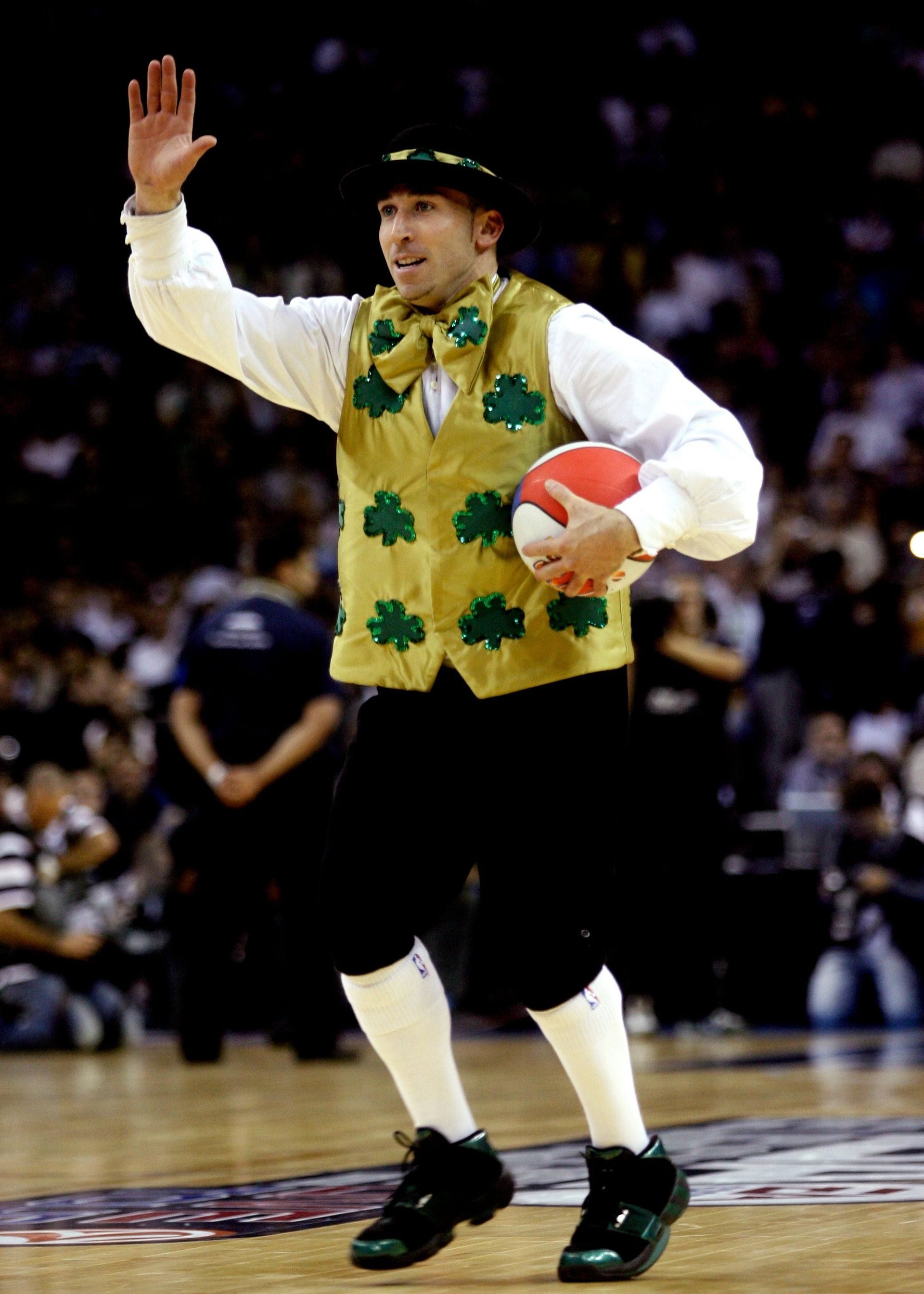
Leprechauns are mythological fae creatures, derived from Celtic/Gaelic folklore. Obviously, not all Celtics are leprechauns, and it may be reductive and problematic to reduce an entire, rich ethnic group of peoples into this guy. Lucky is nonetheless a useful shorthand for “Celtics,” since for better or worse, the leprechaun is one of the most enduring and recognizable touchstones of Celtic culture outside of Ireland.
There’s a bigger question that may be keeping Bostonians up at night: whether or not the current person who embodies Lucky is in fact of Celtic ancestry, or simply just a white person. That question, though, is beyond the scope of this study.
Charlotte Hornets: Hugo the Hornet
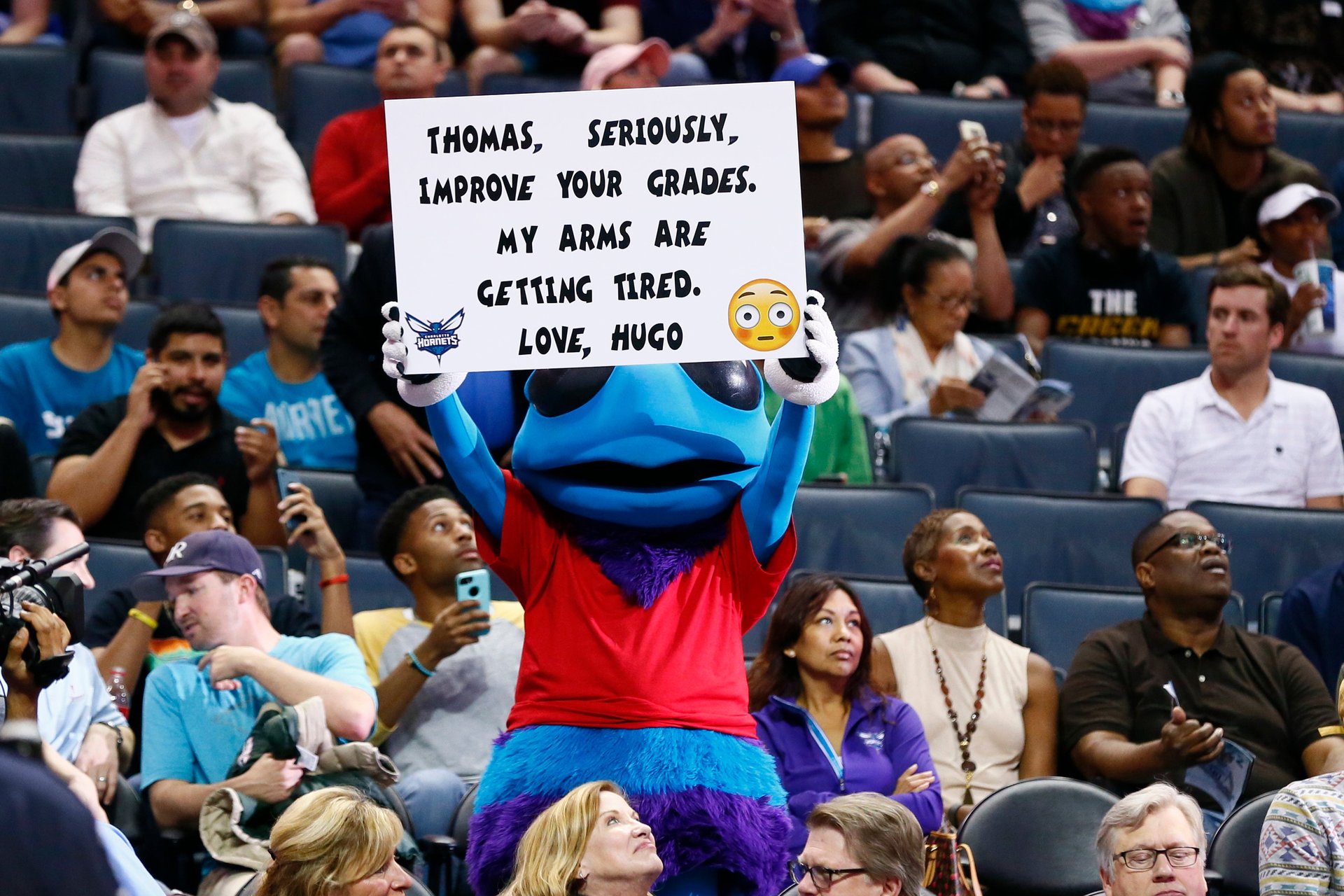
Chicago Bulls: Benny the Bull
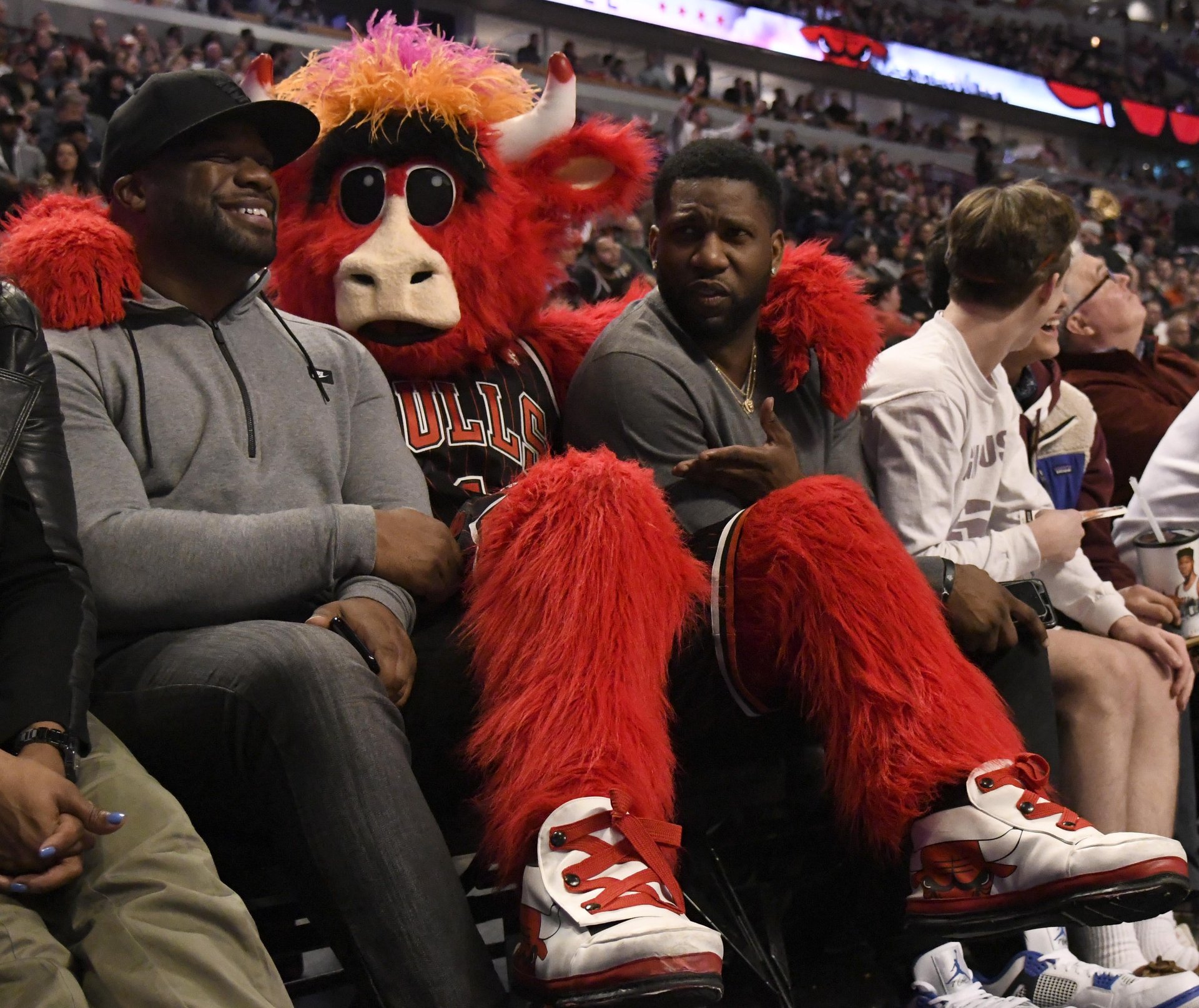
Memphis Grizzlies: Grizz the Bear
A grizzly is a type of bear.
Minnesota Timberwolves: Crunch the Wolf
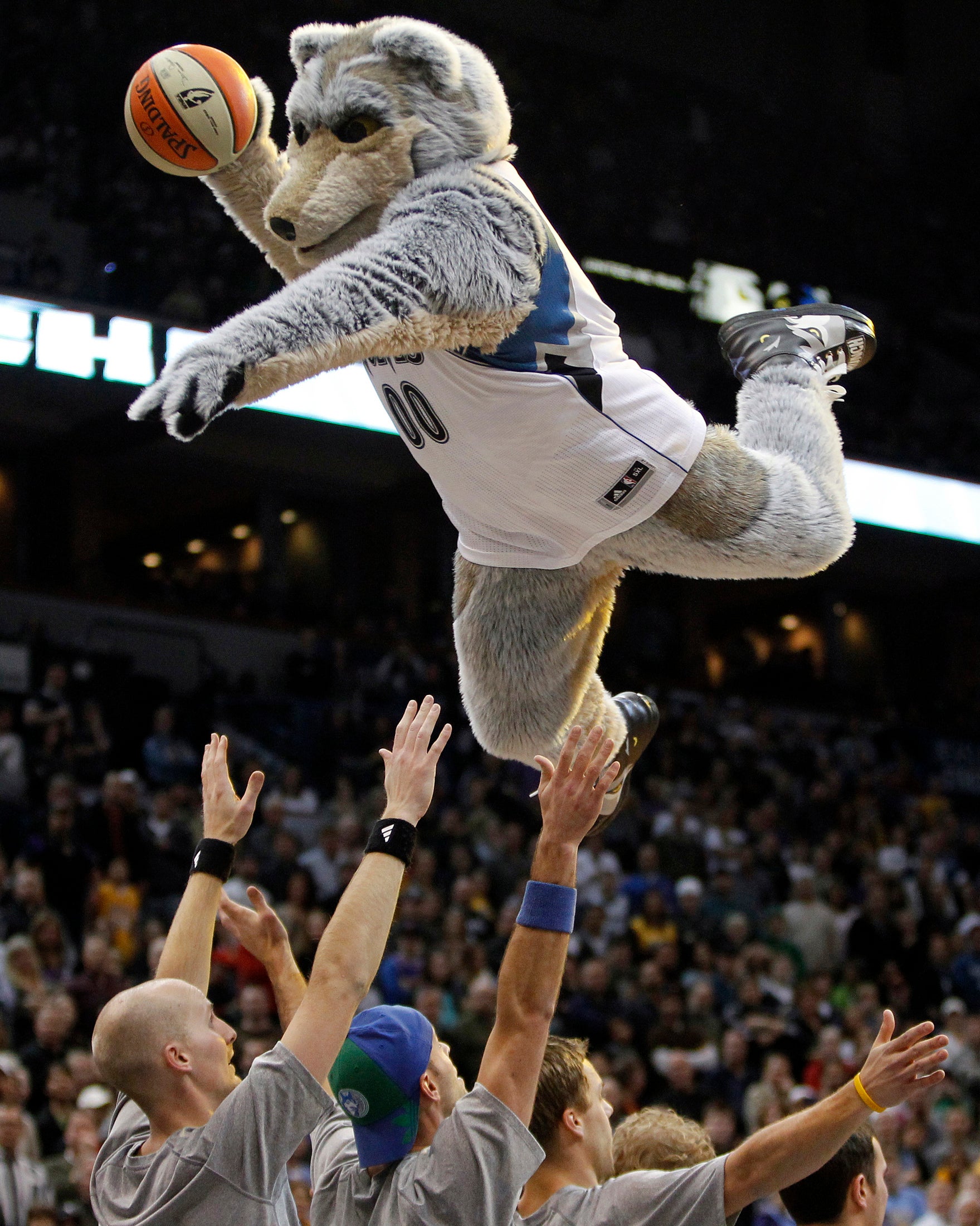
A timber-wolf is a type of wolf.
Milwaukee Bucks: Bango the Buck
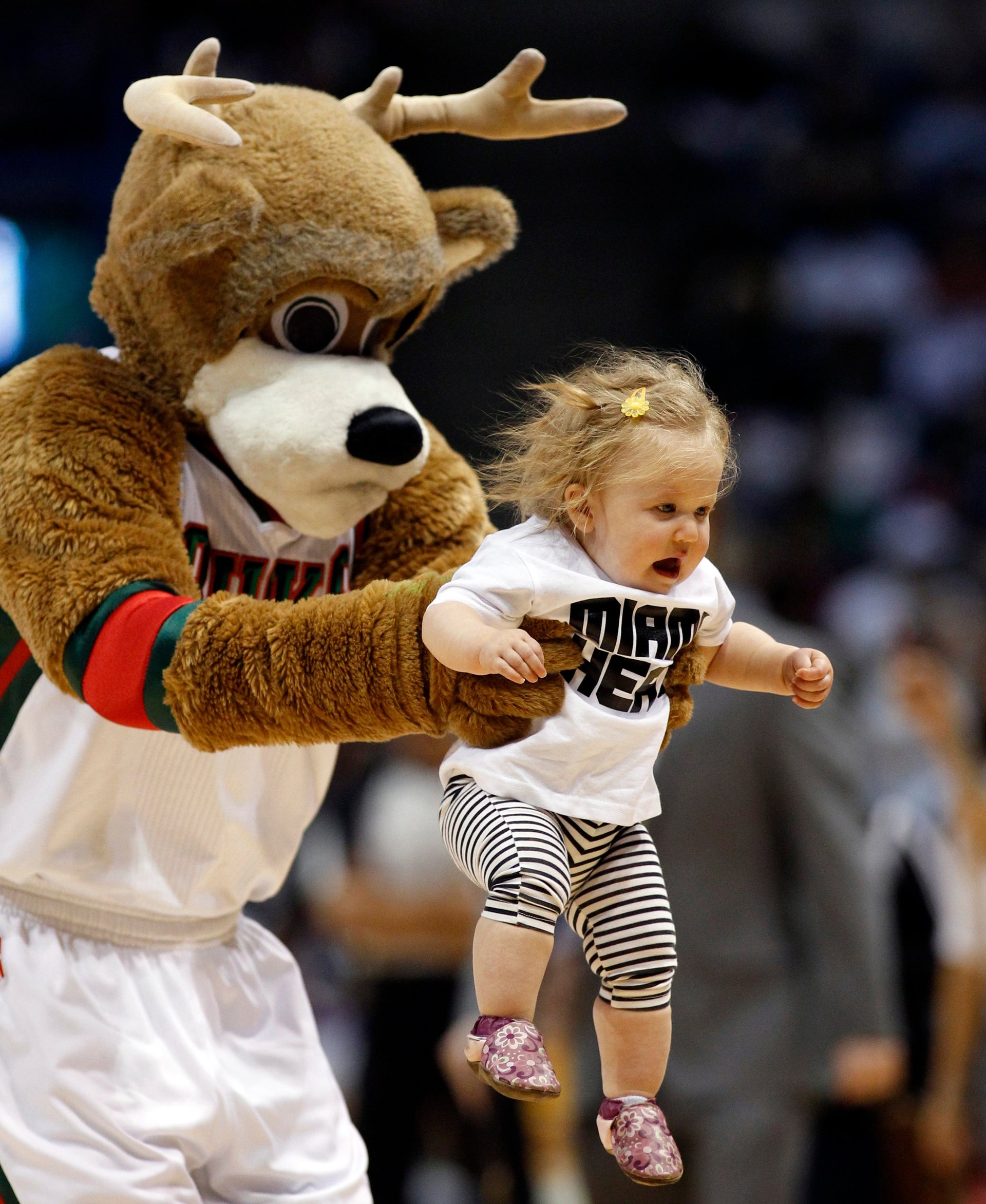
New Orleans Pelicans: Pierre the Pelican
Orlando Magic: Stuff the Magic Dragon
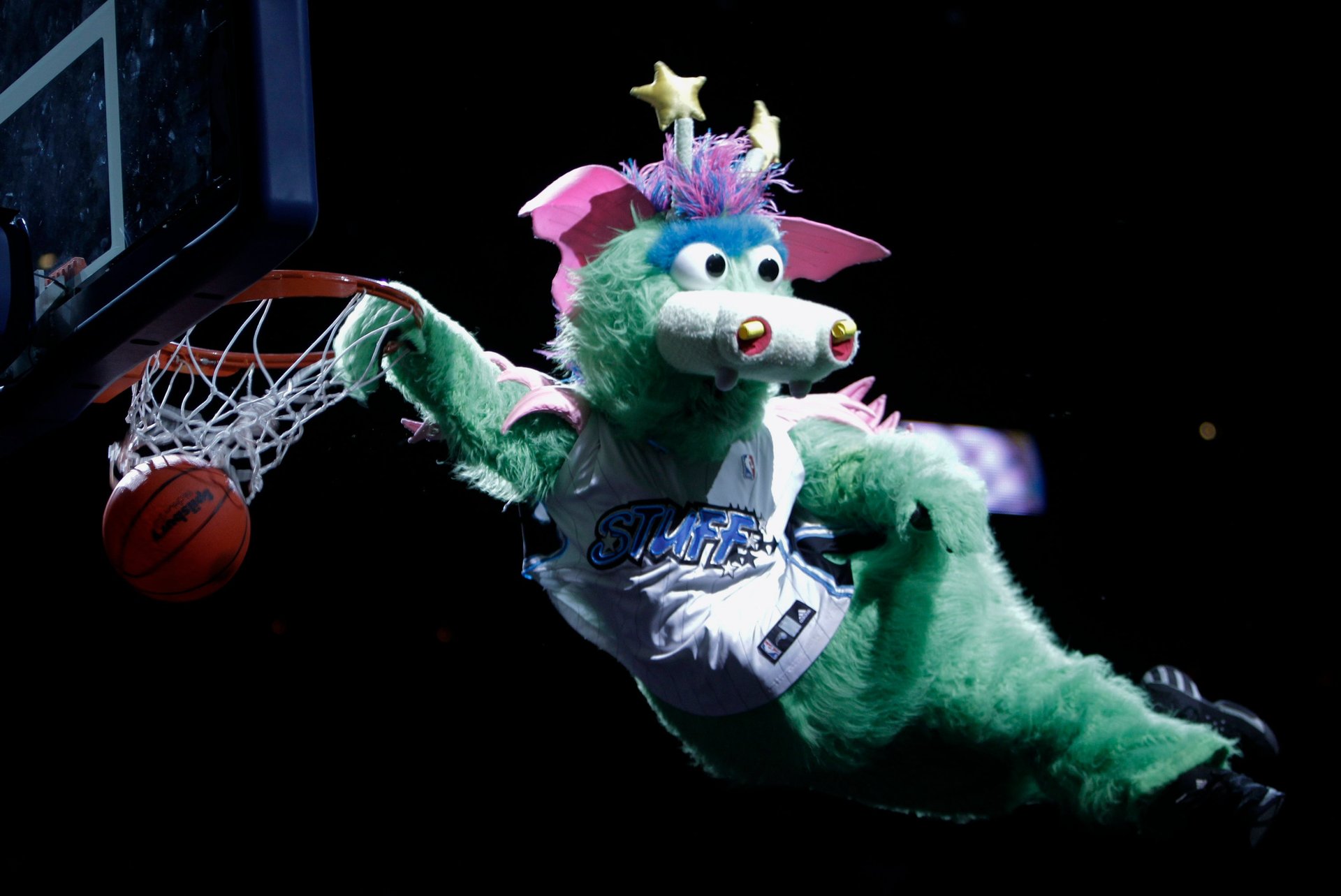
If Lucky the Leprechaun is offensive to Celtic culture, Stuff is possibly offensive to magic culture. The odds were stacked against the Magic on this one. Not only is their team name an abstract concept, it is a fictional abstract concept. But they made it work—Stuff is a magical entity, or to put it another way, he is magic, and therefore is synonymous with the team name.
Toronto Raptors: The Raptor

Washington Wizards: G-wiz the Wizard
It seems that G-wiz is in fact a wizard, which is a class of character in the fantasy world. The confusion comes when trying to ascertain what species or humanoid race G-wiz belongs to, and to attempt to answer that would be beyond the scope of this analysis.
No, your mascot is not your team name
When deciding on a mascot, for whatever reason, these teams eschewed their team name in favor of other representatives.
Denver Nuggets: Rocky the Mountain Lion
He may be a cute ‘lil nugget, but Rocky is decidedly not an actual nugget. A common argument is that a nugget is an inanimate object, and therefore creating a nugget mascot is “impossible.” This is simply untrue. I could spray paint my California Raisins costume gold, and easily create a functional and charming gold-nugget costume. You could even create a co-branding opportunity with McDonald’s by developing chicken nugget. I like Denver’s decision to go with a native apex predator here, but a Mountain Lion is not a nugget, and therefore not the same as the team name.
Houston Rockets: Clutch the Bear (Mouse)
Clutch the Bear is not a rocket. In execution, it’s also not really a bear. It’s clearly a mouse.
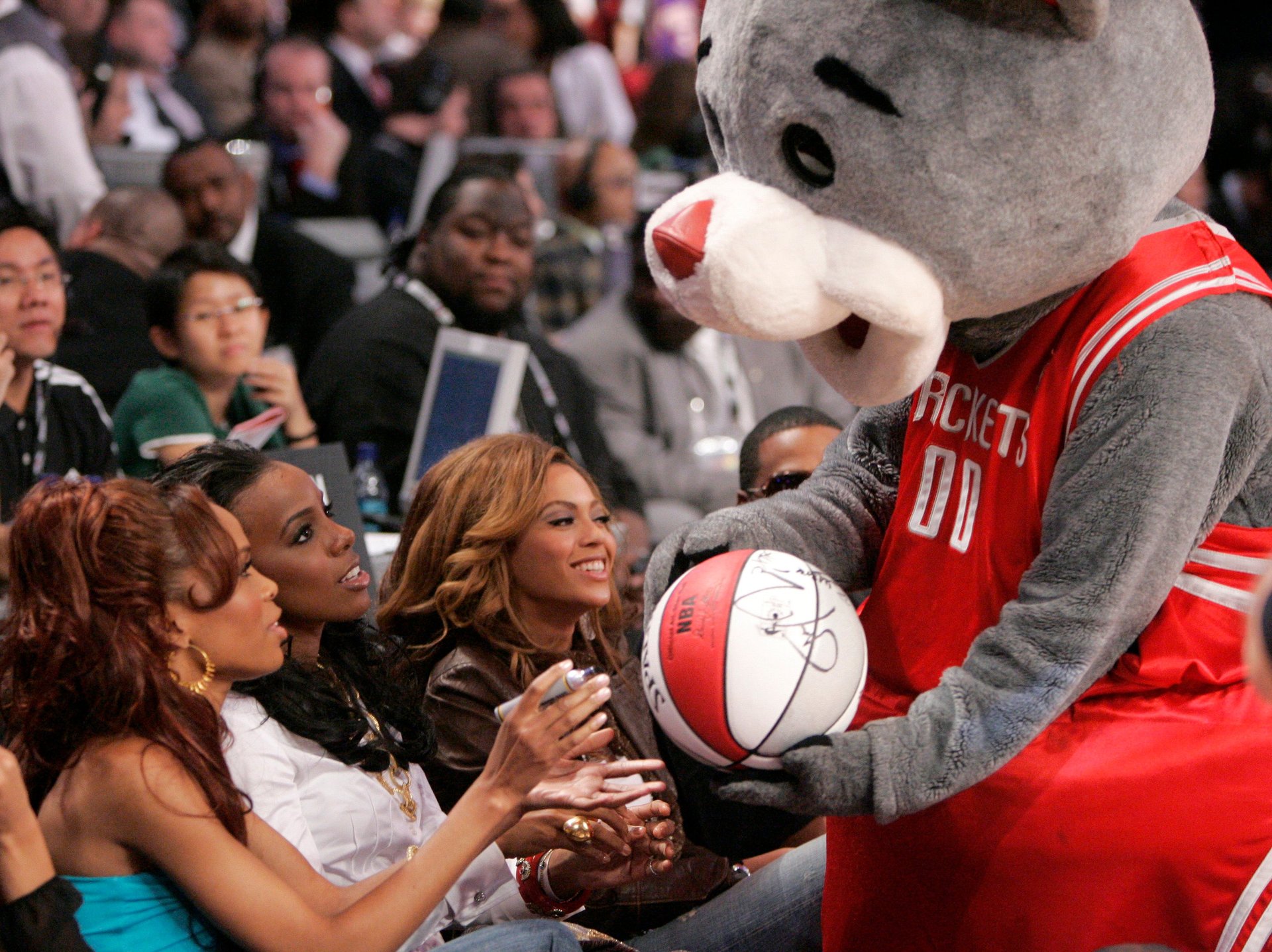
This is the second example in another trend I discovered, of mascot designers in the NBA being wholly incapable of reproducing a bear correctly (see: Grizz, who looks more like a background character from Monsters Inc. than a giant, deadly grizzly bear.)
Los Angeles Clippers: Chuck the Condor
You might think, “hey, a clipper can’t be a mascot, this should to be in the ‘Impossible’ category [which I will fully explain below]. That’s not entirely true. A clipper is a ship, which is a vehicle, not an abstract concept, and I would argue an anthropomorphize-able one at that. Look at Thomas the Tank Engine: clearly you can not only make vehicles with faces, but expect people to emotionally connect to them as well.
Philadelphia 76ers: Franklin the Dog
Franklin the Dog is not a 76er. I don’t what else to say, other than their mascot should have been Ben Franklin.
Phoenix Suns: The Gorilla
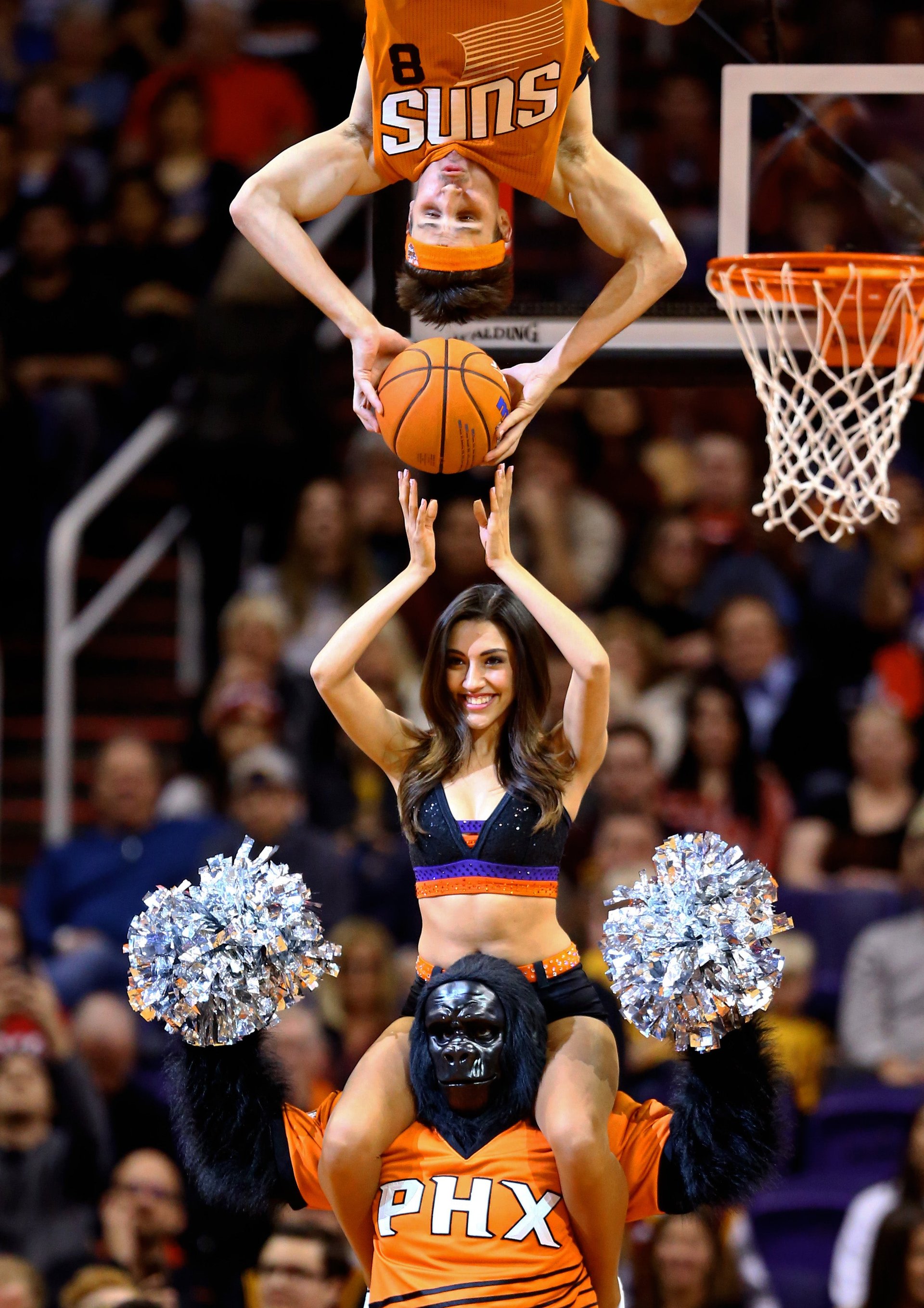
The Gorilla is not a sun. There is not much else to say about this mascot.
Portland Trail Blazers: Blaze the Trail Cat
I almost relegated Blaze to the “impossible,” category because a trailblazer seems like an unrepresentable, abstract concept. What type of “trailblazer” are we talking about? Perhaps you could create a “social justice trailblazer” mascot in the mold of Rosa Parks? That would be an admirable, but questionable choice, given Portland’s iffy track record in diversity and on social justice issues. Plus, I doubt her estate would allow it. Well then, how about a technological or business trailblazer? For that, you would have to look no further than owner Paul Allen, who, among other impressive accomplishments, “blazed” the “trail” for modern-day patent trolls and ticket scalpers.
Really, we know that by “trailblazers” they meant 19th century explorers in the mold of Meriwether Lewis, or some kind of wacky-prospector type. But instead, Portland got…a cat. That’s a genus which has never blazed any trails, unless you count the shit my own cat tracked from his litter box to my bed.
The data are inconclusive as to whether or not your mascot is your team name
These teams have chosen mascots that are, for one reason or another, neither their team name, nor not their team name.
Atlanta Hawks: Harry the Hawk and Skyhawk
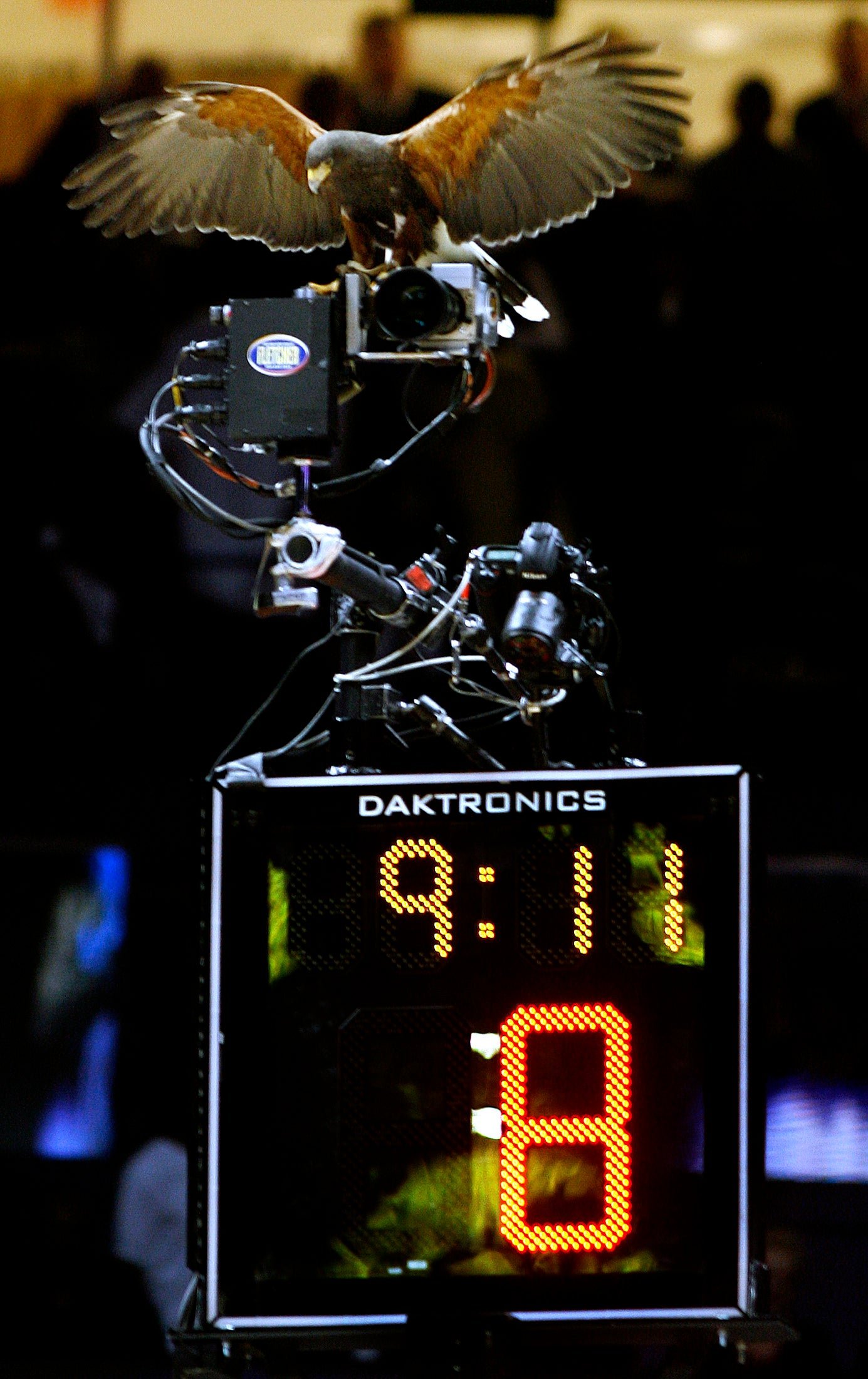
First of all, you shouldn’t be allowed to have two mascots. Harry the hawk is a hawk—so far, so good. But Skyhawk is a cryptozoological abomination, and uncategorizable.
Double-mascot controversy aside, let’s give credit to Cleveland for the fact that Sir CC seems in fact to be a representation of a “cavalier,” as in, a soldier fighting for King Charles in the English Civil War. One could also argue that Moondog is “cavalier” in the attitudinal sense, but one could also say that about most sports-team mascots. I don’t think that’s the brand Cleveland was going for. Likely, the Cav’s marketing team decided it needed a mascot that could be replicated in plush simulacra and sold to the youth of Cleveland. Therefore, the mascot duo of Cleveland is both the team name and not the team name.
Again, inexplicably, two mascots. Dallas has “Champ” who is a horse, and apparently a maverick is a horse, and that makes plenty of sense. But they also have “Mavs Man,” who is a suspect mascot choice for a number of reasons. First of all, the league should not allow teams to have two mascots. And executionally, Mavs Man is bewildering and problematic. Mavs Man depicts what geneticists would do if the free-market-loving Texas legislature had its way and eliminated federal and international regulations on genetic engineering. Mavs Man is the Frankenstein lovechild of a literal basketball and Dolph Lundgren.
Miami Heat: Burnie the (???)
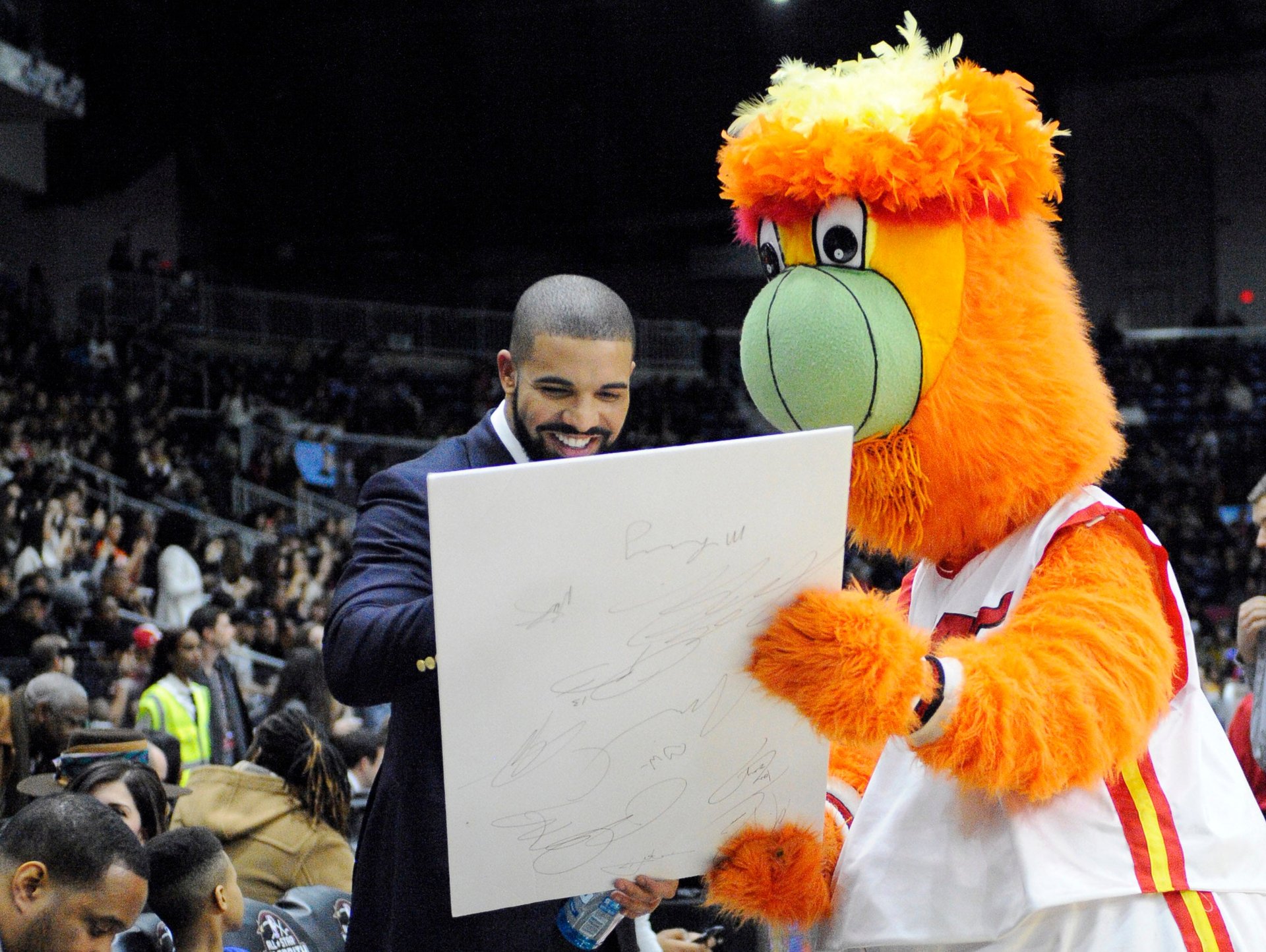
This mascot is a cautionary tale of what happens when you try and convert a shapeless phenomenon or abstract concept into a mascot. This is confusing to the point of terror. The mascot designers working for Heat flew too close to the sun; with melted wings, they have careened back to Earth, the wreckage a pile of colored felt and foam. How am I supposed to explain this to my children? I could write pages and pages and still not come up with a proper way to explain this.
Do what the other abstract teams do: make it a cat- or bear-type thing.
Sacramento Kings: Slamson
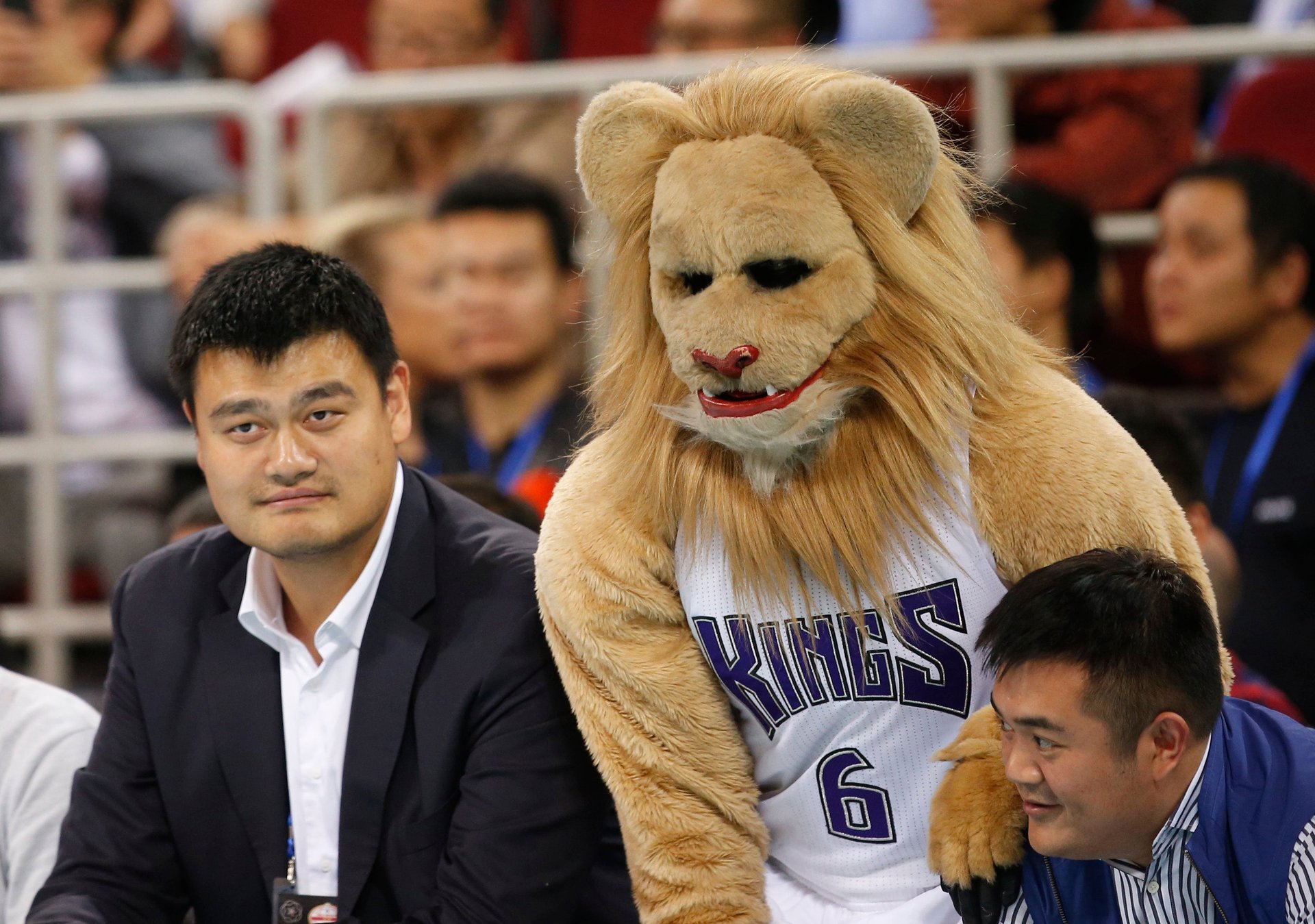
Slamson is a lion. It is obvious Sacramento was going for “King of the Jungle.” I think it’s a bit of a stretch, but a fair one. They could have gone literal, with an actual king, but they opted instead for the popular and classic animal mascot. As a metaphor and a colloquialism, it works! If I may editorialize for a moment, Slamson easily makes the top-five mascot-name team, along with Moondog and Stuff.
It is impossible for your mascot to be your team name
These are teams that were left with no other option than to choose a mascot that is not their team name, due to that name being an abstract concept, or impossible to anthropomorphize while maintaining some semblance of the object or idea that their name signifies.
Detroit Pistons: Hooper the Horse
The Pistons’ hands were tied here. Either make an avant garde attempt at replicating a piece of machinery that most people, even in the Motorcity, wouldn’t recognize, or make it an animal. If Burnie has taught us anything, the Pistons made the right choice.
Indiana Pacers: Boomer the Panther
We are dealing with an abstract concept here—more abstract than a Trailblazer. There’s no way to properly represent this term. Boomer is fine. I mean, yeah, sure, a panther, why not.
Utah Jazz: Jazz Bear
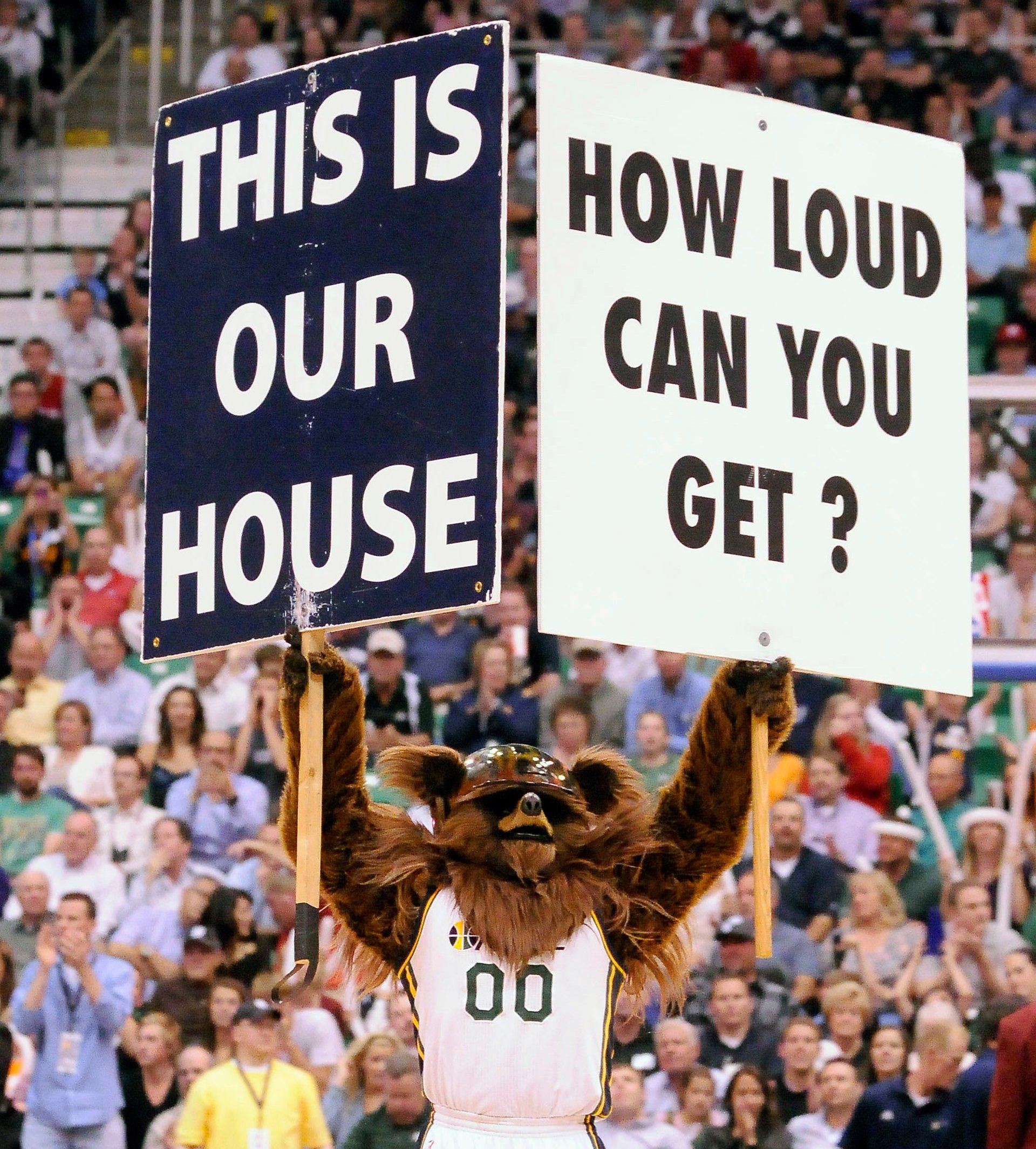
Musical genres cannot be mascots. In this case, the Jazz went with Jazz Bear, which is apparently some sort of wookie. Also, this name…. C’mon.
Oklahoma City Thunder: Rumble the Bison

This is a great choice from a team in a tough spot when it comes to answering the question “how do we make our mascot our team name?” Thunder is a sound; a shapeless weather phenomenon. Sure, they could have chosen a bolt of lightning, but that would have been decidedly less cute, and also still not technically thunder. Instead, they chose a historically and ecologically important native animal, a symbol of the North American prairies, and a beast that, when stampeding, might make a sound not dissimilar from thunder. To top it off, “rumble” is a synonym for “thunder.” OKC really did their homework here.
Los Angeles Lakers: Jack
I don’t know what a Laker is. Neither does anyone, really. So what should the Buss family have done when choosing their team’s mascot? Maybe some sort of fisherman? Perhaps a person on a jet ski? No, none of that would do. They needed a classic and archetypal representation of the Hollywood apex predator. So they went with “Jack,” a rich, old, white man. A+. Great take on the local fauna, and a top-tier mascot.
San Antonio Spurs: The Coyote
This is where I had to draw the line between “No” and “Impossible.” I know that the Rockets and Clippers are also named after inanimate objects, but those objects have historically been anthropomorphized. It’s not hard to imagine a dancing rocket, however phallic, or a friendly boat. A spur is a different story. It is cold, angular machinery. It’s geometric and inorganically lanky, making the task of giving it a body or face nearly impossible. The only option would be to separate the spikey circle thing from the rest of the spur apparatus—but then it would just look like a circular saw. No doubt that would be a menacing mascot, but it would no longer be recognizable as a spur. Instead they went with a representation of the local fauna.
Why they refused to go with a Cowboy, who uses the spur, or a Horse, whom the spur is used upon, is baffling.
Your team does not have a mascot
Brooklyn Nets
It is a strange coincidence that the year the Nets engaged in arguably the worst trade in NBA history was the same year they made the sensible move of retiring their much maligned mascot, the “Brooklyn Knight.” In 2019, the Nets will finally get to use one of their own first-round draft picks; we hope it will come with a retooled mascot strategy.
Golden State Warriors
Wow, look at the cool kid at the table. “What’s your mascot?” “Oh, I don’t really do that.” “Why not?” “Mascots are kinda tacky, don’t you think?”
Maybe they were (rightly) embarrassed by fielding one of the worst mascots in NBA history, Thunder, year after year. Or maybe they were bitter over the newly minted OKC Thunder stealing Thunder’s thunder, and their lack of mascot is actually a continuous, silent protest. Whatever the reason, the Warriors should be suspended until they have a mascot, and their mascot-less titles should be vacated.
New York Knicks
“Why do we need a mascot? We are the best city in the world.” You are a sports team—sports teams should have mascots. If only the Knicks had modern-era (post ABA merger) championships to vacate, then we would do that.
Your team doesn’t exist
Seattle Supersonics